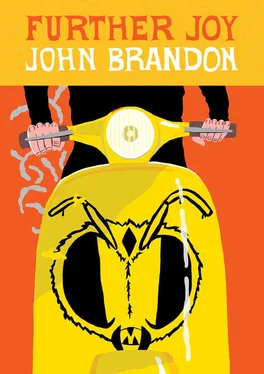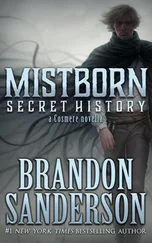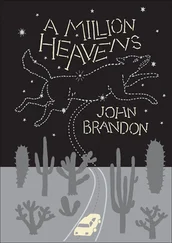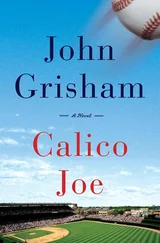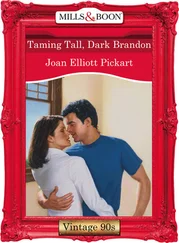John Brandon - Further Joy
Здесь есть возможность читать онлайн «John Brandon - Further Joy» весь текст электронной книги совершенно бесплатно (целиком полную версию без сокращений). В некоторых случаях можно слушать аудио, скачать через торрент в формате fb2 и присутствует краткое содержание. Год выпуска: 2014, Издательство: McSweeney's, Жанр: Современная проза, на английском языке. Описание произведения, (предисловие) а так же отзывы посетителей доступны на портале библиотеки ЛибКат.
- Название:Further Joy
- Автор:
- Издательство:McSweeney's
- Жанр:
- Год:2014
- ISBN:нет данных
- Рейтинг книги:5 / 5. Голосов: 1
-
Избранное:Добавить в избранное
- Отзывы:
-
Ваша оценка:
- 100
- 1
- 2
- 3
- 4
- 5
Further Joy: краткое содержание, описание и аннотация
Предлагаем к чтению аннотацию, описание, краткое содержание или предисловие (зависит от того, что написал сам автор книги «Further Joy»). Если вы не нашли необходимую информацию о книге — напишите в комментариях, мы постараемся отыскать её.
The New York Times
Further Joy — читать онлайн бесплатно полную книгу (весь текст) целиком
Ниже представлен текст книги, разбитый по страницам. Система сохранения места последней прочитанной страницы, позволяет с удобством читать онлайн бесплатно книгу «Further Joy», без необходимости каждый раз заново искать на чём Вы остановились. Поставьте закладку, и сможете в любой момент перейти на страницу, на которой закончили чтение.
Интервал:
Закладка:
Mitchell went out to a colorless wash of earth a couple hundred yards behind his building, gathered a bunch of spiny dead shrubs, and started them on fire. He surrounded the fire with a circle of rocks. He arranged withered cactus paddles in the flames, a heavy cottonwood branch. He jogged back to his building and grabbed a lawn chair that had been in the condo when he and Bet had moved in, and he grabbed the beat-up box and shoved all of Tom Spelher’s property back into it. He went out and sat in the lawn chair and burned the papers one by one. Tom Spelher, he decided, would remain a dignified unknown. Mitchell would do Tom Spelher that favor. He stood and looked around occasionally, but no one was going to say anything to him about his fire. Nobody was watching him except the stars.
Mitchell was nowhere near the leg of the Russian novel where people would begin getting what they deserved. He could only read about five pages at a time before he lost concentration. He was never going to finish the thing, he saw. It would be like his TV — another purposeless item to carry around for the rest of his life.
Sometimes Mitchell thought it would help him to break something but there was nothing in the condo to break, no china or anything. There was nothing in the condo but basic furniture and the TV and twice he picked the TV up to hurl it against the floorboards but was able to stop himself.
He ate a couple handfuls of stale granola and swept his kitchen and then shut the door to the spare room and sat in the living room with his phone in his hand. His tongue tasted like cardboard and his eyes were watery. He dialed the number of the woman who ran the complex, an almost-old lady with red hair named Ruby, and when she didn’t answer he left a calm, clear message saying he wanted to switch condos as soon as possible. He said at her nearest convenience he wanted her to get him into another place. He didn’t like the sun in the morning and preferred a west-facing unit, a one-bedroom if she had it.
Mitchell hung up and rested his chin on his fists. It would take him half an hour to fully move out of this condo. Half an hour tops and there wouldn’t be a trace of him. He wanted a fresh start. Different walls. Something else out the window. There was nothing wrong with New Mexico. He just needed to hit the reset button. He reclined back on the couch, letting his shoulders go slack, and tried to trust the small spring of calm that was running through him.
When the call came back, just ten minutes later, Mitchell couldn’t coerce himself to answer it. He was full of panic, staring at the thin black phone in his palm. He saw RUBY REYNOLDS on the screen and listened to each incurious ring until there wasn’t a ring, until one of the silences in between drew out and no ring came. He went and set the phone on top of the TV, happy to get it out of his hand. This wasn’t good, that he hadn’t answered the phone. It was unwise, the wrong fork in the path. He could tell himself he didn’t want to run away from his problems, but that wasn’t true. He had no qualms about running from problems. Somewhere inside him he wanted to see how this was going to turn out. He was curious about the brains, about what end they might come to. If he had brought them into existence, he wanted to see how he was going to get rid of them. If he hadn’t brought them into existence, which was unlikely but couldn’t be totally dismissed, then he wanted to know their purpose, wanted to wait until he could learn something important about them. If he fled them, he’d have to wonder forever. He’d never be in his right mind again.
Ruby called back every few hours for the next couple days, forcing him to turn off his ringer, but he could still hear the phone vibrating against the kitchen counter or the floor or wherever he’d left it.
He never picked up the letter but he shifted it here and there into different positions on the high round table in the kitchen. The envelope was no longer flat, from getting baked by the morning sun over and over. It looked brittle, wizened.
Mitchell brought home another meatball sub. He slid Bet’s letter out of the way and sat at his kitchen table and got down as much of the sandwich as he could, which wasn’t a lot. He folded the whole mess up in its wrapping and, rising off the stool, caught sight of something over on the living room floor that shouldn’t have been there, on the other side of the couch, looking at a glance like a bunch of loose slippers or something. Mitchell walked over there and stopped short before the spectacle. He felt himself nodding in appraisal. It was the brains. All seven of them. He was clutching the balled-up sub to his chest, the even ticking of the clock behind him somewhere. The brains, out of the spare room, arranged in a soft-pointed diamond, all of them still spaced equidistantly. This was a migration. It had taken them an hour to get this far. Maybe more. Several hours. Here they were, on the move, each one following the subdued hum of the others.
Mitchell returned to the kitchen and stuffed the sub in the trash can, then went around and closed all the blinds, twisting the clear plastic staffs. He washed his hands at the sink, came back to the living room and flipped the overhead light off. He’d begun to lose faith, but now something was happening. Mitchell was wearing a T-shirt with long sleeves and he tugged the sleeves up to his elbows. His hands were clammy, like that first day. His mind’s eye was so crowded it was blank. The brains looked the same as ever. There was no such thing as effort for them. They were all oriented in the same direction, advancing toward the front of the condo, aimed, in fact, straight at the front door. That had to be where they were going; there was nothing else over there but the door. They were leaving. Whatever they’d been doing here, they were finished. Dusk was taking hold outside. They would leave overnight — judging by the distance they still had to cross, sometime in the wee hours. Mitchell didn’t know what he should think of this. He felt tired in his body but alert in his mind. He could smell the brains now. Their peanut musk was drowning out the odor of the meatball sub. Relieved, obviously. That’s how he should feel and he did feel it. This problem of his was finally working itself out. He’d indeed handled it correctly. He’d kept it to himself and had kept his mind intact and now this trouble was taking its leave of him. He’d endured it. Mitchell sat on the arm of the couch and watched the brains for a few minutes. Of course, they moved too slowly for him to perceive it. That had always been the way. You had to leave them alone and come back later, like they said about getting water to boil.
He stood up and paced across the living room in a composed manner, ready to take some inventory, feeling tired in a welcome physical way rather than just feeling sick of himself, feeling weary in his legs but excited about the future. He went into his bedroom and raised the window, shimmying it around to get it unstuck. The temperature was dropping outside. Mitchell stuck his head out and the night sky looked familiar. He had been caught in a pernicious orbit but it was about to break apart. His eyes were dry and keen. He could see the puppetlike silhouettes of the desert birds perched on the cacti, could see their little beaks snapping open when they called. He could see the shadowy features of every rough hill, all the way to the flats where he’d conducted his fire.
Mitchell looked at his bed, made up with its sharp-cornered olive sheets as it had been since the day Bet left. He hadn’t slept in it since she’d gone. He doubted he was going to sleep tonight, but if he did it was going to be here, in a bed like a normal person, on this perfectly good queen mattress. Mitchell went over to the closet and slid the doors all the way open. Besides the sneakers he was wearing, he had two pairs of shoes — boots and dress shoes. He took the sneakers off and lined them up smartly with the other pairs on the closet floor. He organized the clothes he had on hangers, the two coats together, the handful of dress shirts together, a light pair of pants and a dark pair. Next he opened the top drawer of his dresser — a few balled-up pairs of socks, nail clippers, a receipt from a vegan coffee shop he and Bet had stopped at in Santa Fe, a travel-size bottle of leather conditioner. He left the socks where they were, and everything else he took out and set on top of the dresser. Mitchell looked forward to facing his life again. He knew he could do it; he could participate. He was going to iron his shirts and shine his dress shoes. He was going to pick out a day and finish that damn Russian novel in one go. He thought of the letter, still sitting out there on the kitchen table, almost smirking. He didn’t care anymore what was in the letter. Mitchell felt now that he could throw the letter out, another bit of tidying on tomorrow’s agenda. He didn’t need to imagine good news in it anymore. No good news could come from Bet. She thought it was one-sided, that Mitchell needed her and she didn’t need him, but she’d find out sooner or later that she wasn’t going to find anyone better than Mitchell. And then it would be too late. Mitchell was going to move on with his life and she was going to keep avoiding hers, and by the time she saw the error of her ways it would be too late. Way too late.
Читать дальшеИнтервал:
Закладка:
Похожие книги на «Further Joy»
Представляем Вашему вниманию похожие книги на «Further Joy» списком для выбора. Мы отобрали схожую по названию и смыслу литературу в надежде предоставить читателям больше вариантов отыскать новые, интересные, ещё непрочитанные произведения.
Обсуждение, отзывы о книге «Further Joy» и просто собственные мнения читателей. Оставьте ваши комментарии, напишите, что Вы думаете о произведении, его смысле или главных героях. Укажите что конкретно понравилось, а что нет, и почему Вы так считаете.
